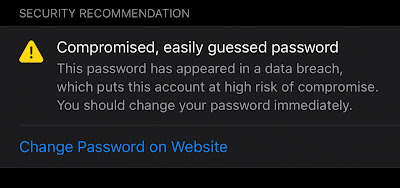Week 7: Background
Hello there! It was nice to have taken a break for a week, but now we must get back to business, beginning with a little background on this research project.
My research project seeks to determine how people truly feel regarding the privacy of their personal data, particularly that of which is stored in the cloud. Data privacy, although a relatively new concept as computers and internet-connected devices are much more prevalent nowadays than they were even a decade ago, is usually well documented for cloud services. For example, Apple openly states that your photos, documents, health, home, and contact data (among other things) are sent to their servers on a regular basis, not requiring any user interaction – as long as you are using their iCloud service, that is; Apple heavily encourages you to log in to your Apple ID and utilize iCloud services when first setting up a new device, so it is safe to assume the vast majority of Apple products utilize iCloud to some extent. However, they also go in detail about their security methods: user data is encrypted in transit to the cloud, is encrypted once it’s in the cloud, and is secured with authorization tokens – this is called end-to-end encryption, and most data connected to an Apple ID is secured in this manner.
But despite well-documented security methods, nothing is foolproof. Data breaches occur regularly amongst even non-cloud related services and companies (such as the recent T-Mobile data breach), and iCloud itself has been the subject of several incidents, the most notable of which happened in 2014 and resulted in a large number of private photos of celebrities being leaked and released to the public. Granted, iCloud itself wasn’t breached; this likely happened because of phishing, in which sensitive data is stolen by something pretending to be something else – like receiving an email that claims to be from Amazon but belongs to a person or organization with malicious intent.
 |
| A compromised password warning. Apple began implementing this feature on its mobile devices with the release of iOS 14 in 2020. |
These incidents have resulted in a public unease regarding data security, at least based on anecdotal evidence – and that’s what I’m seeking to research for this project on a larger scale. Although there is evidence to prove that user data is largely safe in the cloud, is it enough for us to feel comfortable with storing our data outside our devices?
See you next Thursday! Over and out.



Comments
Post a Comment